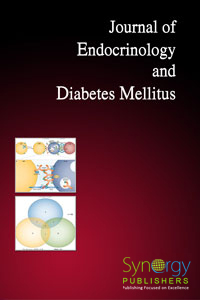
Stress Hyperglycaemia in Patients with Acute Coronary Syndrome Pages 78-84
Christoph Henzen1, Stefan Fischli1, Richard Kobza2, Torsten Weirauch3, Beat Schmid1, Kuno Heer3 and Verena A. Briner1
Department of Internal Medicine; 1Division of Endocrinology, Diabetes and Clinical Nutrition; 2Division of Cardiology, 3Medical Intensive Care Unit, Kantonsspital Lucerne, Switzerland
DOI: http://dx.doi.org/10.12970/2310-9971.2014.02.02.7
Abstract: Objective: Stress hyperglycaemia is a prognostic marker in non-diabetic patients with acute coronary syndrome indicating increased mortality. However, there are conflicting results on the benefit of achieving near-normoglycaemia in these patients.
Methods: A prospective open-label cohort study including non-diabetic patients with acute coronary syndrome admitted to the medical intensive care unit of a tertiary care hospital. In patients with stress hyperglycaemia intravenous insulin treatment was initiated to achieve normoglycaemia, and prognosis (death, myocardial reinfarction, revascularisation, kidney failure, congestive heart failure) and the importance of inflammatory cytokines and cortisol were assessed.
Results: Overall 94 non-diabetic patients were included in the study, 48 patients with normoglycaemia and 46 patients with hyperglycaemia on admission. After 12 hours of intravenous insulin treatment patients with stress hyperglycaemia achieved plasma glucose levels similar to the normoglycaemic patients. The mean insulin dose was 36.5 + 18.7 Units/24 hours, and there were no severe hypoglycaemic events. There was no difference in mortality or myocardial reinfarction, or new onset of renal insufficiency between the two groups, (p=0.36 and p=0.31, resp.), but congestive heart failure was significantly more common in patients with stress hyperglycaemia (p=0.011). Plasma cortisol levels were significantly increased in patients with stress hyperglycaemia and correlated to glucose concentrations (r=0.426, p<0.001).
Conclusions: Our findings suggest that in patients with acute coronary syndrome an increased stimulation of the cortisol axis contributes to stress hyperglycaemia and to the worse outcome.
Keywords: Stress hyperglycaemia, acute coronary syndrome, plasma cortisol, congestive heart failure, insulin resistance. Read more

